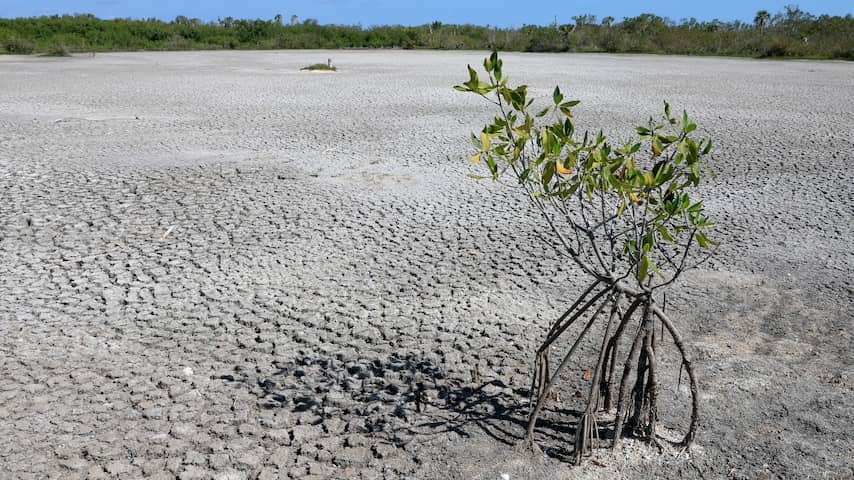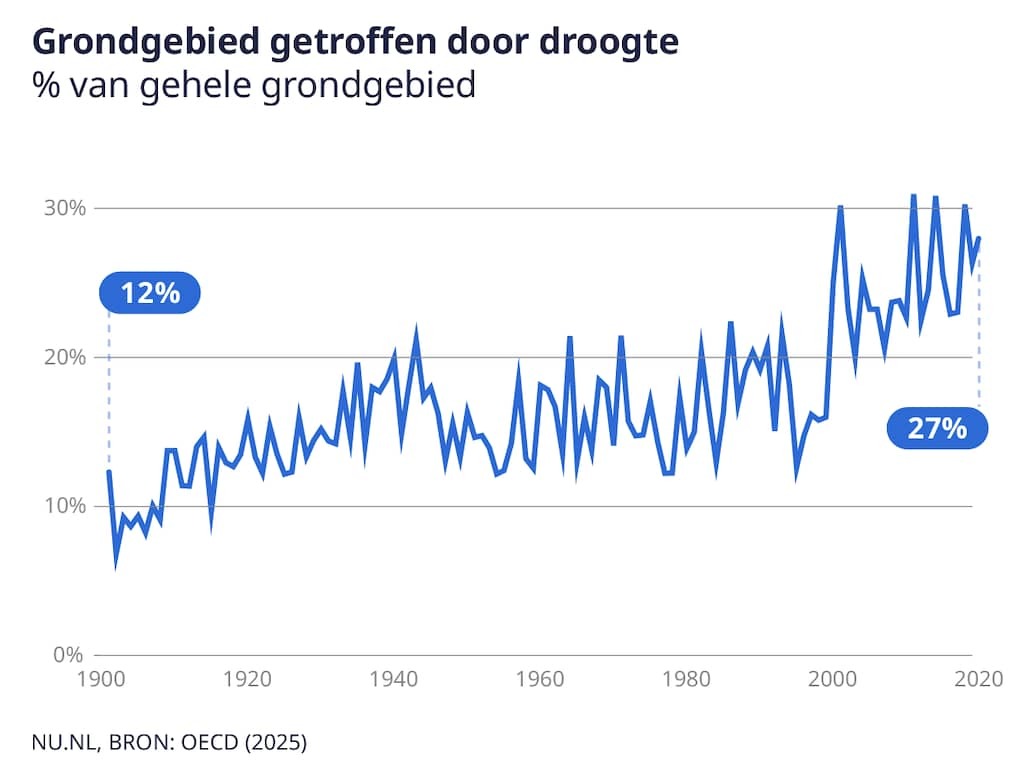
More and more places in the world are experiencing increasingly intense periods of drought. The land area affected by drought annually has doubled in over a hundred years. This leads to health risks and increasing economic damage.
Currently, almost a quarter of the world’s land surface (excluding deserts and polar regions) is affected by drought in an average year, according to a new OECD report released on Tuesday. Around 1900, that was just over 10 percent.
Climate change due to our greenhouse gas emissions is the main cause of the increased drought. But other human factors also play a role, such as deforestation, extraction of groundwater for agriculture, and urbanization.
The consequences are greatest in developing countries. For example, two years ago, tens of millions of people in the Horn of Africa were in famine due to the lack of rain for years. That drought would have been a hundred times less likely without climate change, scientific research has already shown.

Economic damage is increasing
For the time being, there seems to be no improvement in sight. Groundwater levels are falling in many places around the world, and less and less water flows through rivers. This not only threatens the water supply for people and agriculture, but also biodiversity.
Since the year 2000, the economic damage caused by drought has also increased significantly worldwide, for example because harvests are lost. Worldwide, the damage caused by drought increases annually by between 3 and 7.5 percent, according to calculations by the OECD. The costs of an average drought in one place have doubled since 2000 and will certainly be 35 percent higher in ten years than they are now.
The impact of drought can be great, especially in developing countries, but rich countries are also not spared. In the American state of California, for example, drought in 2021 caused more than 1 billion dollars in losses in the agricultural sector.
The consequences of drought can also be great in other sectors. For example, because ships cannot sail on rivers with low water levels, or because energy generation from hydropower plants is disappointing.
Countries must invest heavily to absorb the consequences of drought, the OECD states. According to the organization, every euro they invest in preventing drought yields two to three times as much in economic benefits.